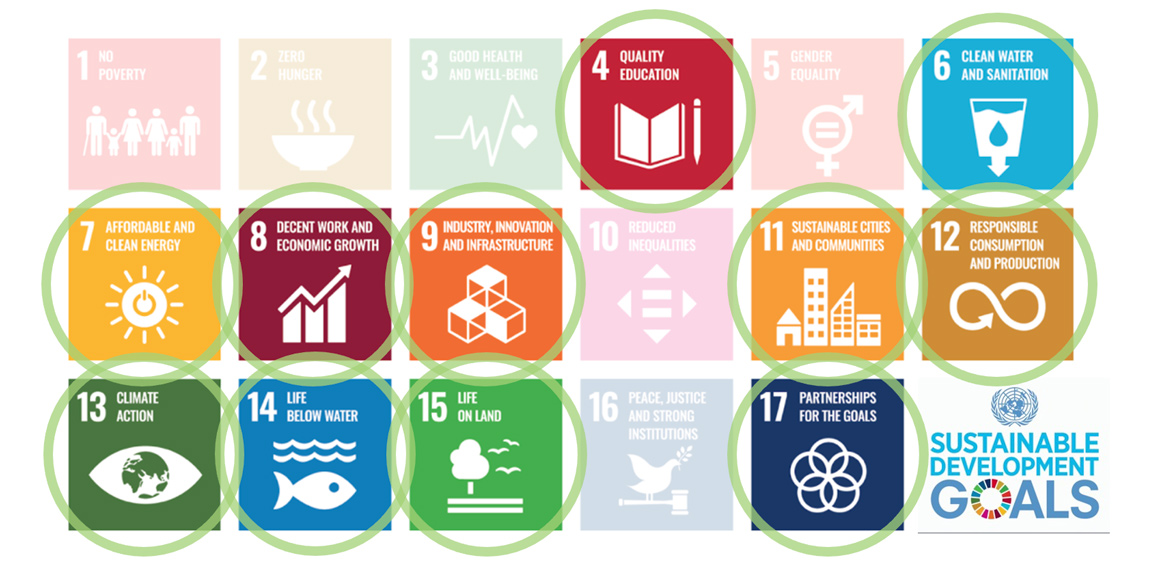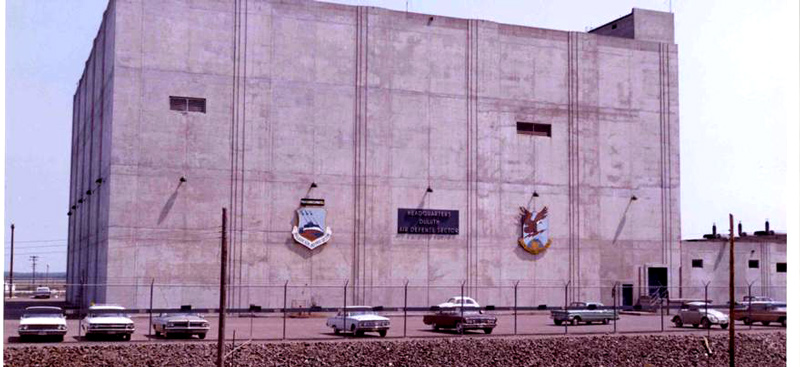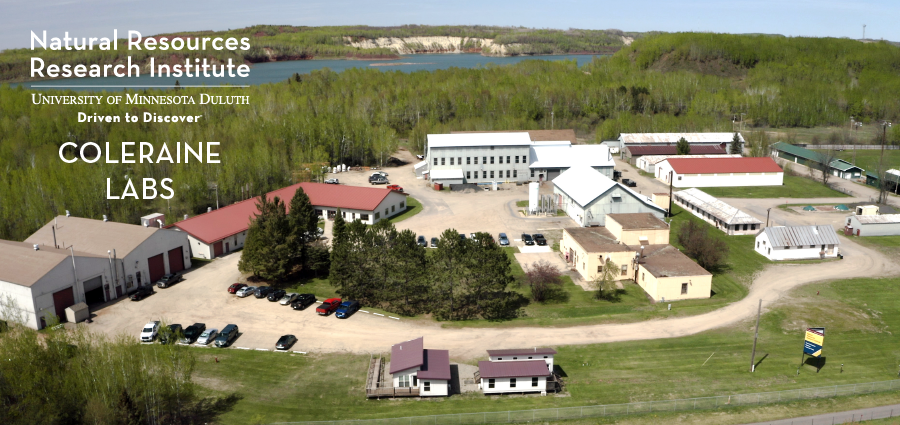Mission Driven. Impact Focused.
NRRI Charter
Our Core Values
Our Core Values drive and define everything that we do, and are the measure by which we gauge our success.
- Safety | The safety and well-being of our employees and partners are always first.
- Quality | We commit to excellence in all aspects of our work.
- Integrity | We hold ourselves to the highest ethical standards to maintain trust by continuously demonstrating respect, clear communication, impartiality, honesty, and stewardship.
- Innovation | We actively embrace change, empower creativity, and seek new perspectives to translate discovery into solutions.
- Partnership | We strive to create and sustain productive relationships to achieve shared goals.
- Collaboration | We build diverse, inclusive teams to frame research challenges, share knowledge and deliver impacts.
NRRI Mission
Deliver integrated research solutions that value our resources, environment and economy for a sustainable and resilient future.
NRRI Vision
Discover the economy of the future.
NRRI research informs decisions on natural resource utilization and drives economic opportunities for the State of Minnesota and beyond. The economy of the future will be defined by the natural resource nexus of water, energy and materials within the sustainable development nexus of the environment, economy and society. NRRI seeks to develop a portfolio of opportunities for Minnesota.
NRRI Organization and Facilities Overview
As part of the University of Minnesota system research enterprise, NRRI employs over 140 scientists, engineers, technicians, staff and students in two industrial research facilities. Through collaborative partnerships, we deliver the innovative tools and solutions needed to utilize and sustain Minnesota’s valuable natural resources.
NRRI was established by the Minnesota legislature in 1983 as an applied science and engineering research organization to inform state citizens and decision-makers while leveraging the power of the University of Minnesota. We are a mission-driven, project-focused, applied research team working to create opportunities for natural resource stewardship.
Our vision is clear: NRRI is setting out to discover the economy of the future.
About NRRI
+
NRRI Facilities Overview
NRRI has extensive laboratory capabilities to discover and deliver at the bench-to-pilot scales, reducing risk inherent in commercializing innovations.
NRRI Duluth has 19 labs that address the needs of land, wildlife, water and minerals research, as well as several technology development labs and our new LP Innovation Center, developed in partnership with LP.
NRRI Coleraine, a former U.S. Steel R&D facility, is a 27-acre industrial-scale site that was acquired in 1986. The minerals processing and metallurgy labs provide bench to pilot-scale research to broaden the state’s portfolio of ore resources while impacting process efficiencies and improved production of taconite. The engineered biocarbon product development lab tests processes for converting a variety of biomass into fuel and carbon materials up to commercial demonstration scale.
NRRI Fens is a 425-acre property near Zim, Minnesota, was acquired in 1986 to restore its function as a valuable peatland and fens bog after being drained in the 1950s for farmland. Decades of effort have restored the peatland - nature’s most effective carbon sequestration solution - and the restoration credits were sold to state agencies. Ongoing research on the site will continue to inform successful peatland restorations across the nation.
+
Visit NRRI Facilities - Directions
NRRI Duluth: Labs and Admin
nrriinfo@d.umn.edu | Main: (218) 788-2694 | 5013 Miller Trunk Hwy, Duluth, MN 55811 (map)
DIRECTIONS to Duluth Facility: From Hwy. 53 / Miller Trunk Highway, turn onto Cirrus Drive (at Northern Tool). Keep our big, blocky building on your left. Turn left at the “T” and then left again into the parking lot. (Note: Some mapping apps lead you astray, so follow these directions.)
Parking and guest information: Guest parking is located in front of the building, in the parking lot facing Highway 53. A UMD parking pass is required at all other locations. Please enter the building at the front door to register and meet your party. To schedule a visit call (218) 788-2694.
NRRI Coleraine: Minerals, Metallurgy and Biomass Conversion Labs
nrriinfo@d.umn.edu | Main: (218) 667-4201 | One Gayley Avenue, Coleraine, MN 55722 (map)
DIRECTIONS to Coleraine Facility: From Downtown Coleraine, turn off Roosevelt Ave onto Gayley Ave. Turn left into the NRRI gates across from the football field. Follow signage to continue to the parking lot near the ADMIN building.
Parking and guest information: Guest parking is located in front of the administration building. No parking pass is required. Please enter the building at the front door to register and meet your party. To schedule a visit call (218) 667-4201.
+
NRRI Research Groups
NRRI research staff are organized into five Research Groups. All Research Groups integrate to work on research projects across our three major research initiatives.
The Research Groups are:
- Water
- Forest and Land
- Materials and Bioeconomy
- Minerals and Metallurgy
- Data Collection and Delivery
+
NRRI Strategic Initiatives
To meet our mission of delivering integrated research solutions, NRRI is focused on three strategic initiatives that address the challenges of Minnesota’s resource-based economy. These initiatives are bold and long-term efforts to create the economy of the future by incorporating diverse expertise across NRRI, the University system and with our partners.
- Iron and Minerals of the Future - Developing carbon-neutral mineral resource extraction and processing strategies with reduced waste to support high-value products.
- Ecosystem Resilience - Understanding relationships between water, land and mineral resources to manage societal needs and impacts.
- Future Forest Industries - Demonstrating technologies to create and transform renewable biomass and organic waste streams into refined, engineered carbon materials.
+
NRRI Research Support Infrastructure - Central Administration
NRRI has invested in a strong Central Support and Office of the Executive Director infrastructure to support our researchers to do what they do best: research and delivery of integrated solutions. The NRRI administrative team is organized to support the needs of the research community at NRRI. The structure allows consistent practices across different teams and enables the ONE NRRI approach to collaboration and accountability.
Central Support Role:
- Ensure institute approach to safety as a top priority, bring expertise to the table to ensure processes are defined and controlled in a safe manner, and capture best practice through effective documentation and employee training initiatives.
- Prepare reports and metrics that provide investigators and leaders the information they need to be productive and effective.
- Create and ensure that the NRRI administrative support resources are coordinated, aligned on vision, and providing “solutions” to our research activities.
Services and Tools:
- Safety/Quality: Documentation System, Management of Change (MOC), Hazard Assessment, link to EHS (UMD and TC), Safety Committee, Reporting, Employee Training, COVID-19.
- Financial Oversight: Finance Review Board (FRB), Monthly Budget Dashboard (projects and hard funding), Policy Oversight (i.e compliance with University requirements), Hard Funding Checkbook, Annual Metrics.
- Research Support: Translate UMD/UMN Policies and Procedures, transactional support and oversight, event planning, IT expertise and engagement, Point-of-Contact (UMD/UMN/External), facility planning.
NRRI Assets:
- Standardized Safety and Quality Systems (Documentation, MOC, Hazard Reviews, etc)
- Administrative processes designed for compliance and ease of use
- Investment in People and encouraging collaboration as a default to work
+
NRRI Culture Statement
NRRI Culture Statement
We bring our best selves to work at NRRI to make a positive impact on our collective future.
Our culture of innovation, collaboration and integrated research creates ripples of opportunity for Minnesota, the region, and far beyond.
The diversity of our research and our people drives our success.
+
Sustainable Development Goals
Supporting UN Sustainable Development Goals
The United Nations Sustainable Development Goals (SDGs) define 17 different targets for global development adopted in September 2015, set to be achieved by 2030. All countries of the world have agreed to work towards achieving these goals.
Our work at NRRI directly supports 11 of these 17 goals through integrated research and Life Cycle Thinking.

NRRI Frequently Asked Questions (FAQ)
+
What exactly does the Natural Resources Research Institute do?
It might be easier to explain what NRRI is not:
- We don’t set policy.
- We don’t have a teaching mission, nor do we have a degree program.
- We don’t take sides on resource decision-making issues.
NRRI applied research informs decision-makers so they can make the best, most sustainable use of Minnesota’s natural resources. We have a multidisciplinary team of scientists, engineers, technicians and industry-focused management personnel to drive solutions to state challenges.
The current climate crisis is amping up NRRI’s focus on adaptation and mitigation with carbon management. From our Great Lakes to small ponds. From old forests to new forests. From iron ore to new minerals opportunities. NRRI research touches what's important to Minnesota and is relevant globally. NRRI's goal is to deliver economic and environmental solutions with Minnesota focus and global relevance.
NRRI is focused on:
- developing sustainable, natural resource-based industries.
- informing environmental management and policy.
- supporting business and entrepreneurial opportunities.
- assisting industry and communities in defining and maintaining the social license to operate.
NRRI's role is as a non-partial, science-based resource that develops and translates knowledge by:
- fully characterizing and defining strategic resource opportunities
- minimizing waste and environmental impact
- maximizing value from natural resource utilization
- maintaining/restoring ecosystem function
+
How do you balance environmental stewardship with economic development?
Resilient Communities
NRRI knows that a healthy environment generates a strong economy. And a strong economy allows people to invest in their community. NRRI has a wealth of expertise to provide environmental agencies with data for informed decision-making and industry expertise to reduce environmental impact.
- Environmental Assessment and Analysis
- Fish and Wildlife Ecology
- Climate Change Impacts
- Invasive Species
- Ecotoxicology and Environmental Chemistry
- Sustainable Resource Management
- Environmental Mitigation, Remediation & Restoration
- Knowledge & Technology Transfer
- Sustainable Communities
+
What is the history of NRRI?
The History of NRRI
The Natural Resources Research Institute (NRRI) is a U.S. based research institute established by the Minnesota state legislature within the University of Minnesota Duluth. NRRI is an applied research organization that works to develop and deliver the understanding and tools needed to utilize our mineral, forest, energy and water resources in a balanced and environmentally responsible manner.
Addressing the Recession
The mid- to late-1970s and early-1980s were particularly difficult times for Minnesota’s natural resource based industries, especially for the taconite mining industry. In the face of a domestic steel crisis, shipments of iron ore from Northeastern Minnesota’s eight taconite plants plummeted. Growth in the taconite industry, which had begun in the 1950s, ended and employment in this critical base industry dropped from about 16,000 to 3,000.[1] About 2,000 supply companies on the Iron Range, in Duluth and elsewhere in the state were also critically impacted.
Perhaps not as dramatically as the taconite industry, the forest products industry was similarly impacted by the difficult economy. Northeastern Minnesota’s logging and pulp and paper companies, in particular, were affected. At that time, the overall impact on Duluth and the Iron Range economy was verging on catastrophic.[2]
Organizing for Action
In the face of these challenging times, civic, business, government, higher education and labor leaders began to focus on initiatives to help the economy. With a strong belief in its long-term value, U.S. Eighth District Court of Appeals Judge Gerald Heaney advocated for applied research. Then, in his 1982 gubernatorial campaign, Rudy Perpich proposed that a center be established to do research on such resources as peat, biomass, forest products, water and minerals.[2]
A "Proposal to Establish A Natural Resources Research Institute at the University of Minnesota Duluth" was submitted to the Minnesota State Legislature under the seal of the Regents of the University of Minnesota. The proposal affirmed the applied nature of research at the new institute, noting that its work would be separate and distinct from the University’s Minerals Resources Research Center, and recommended the SAGE building in Duluth as an adaptable site.[2] UMD Chancellor Robert Heller worked with Governor Perpich and Judge Heaney to gain political support throughout the state.[3] The institute also had strong federal support which included that of Minnesota's 8th district congressman, Jim Oberstar.
Legislative Charter (1983)
Foster the economic development of Minnesota's natural resources in an environmentally sound manner to promote private sector employment.
*Originally published in Wikipedia. Learn more at Wikipedia.
+
What is the history of the Duluth SAGE building?

A Relic from the Cold War
The building that houses NRRI today was built as an air defense command center during the Cold War. Located next to Duluth’s International Airport, NRRI's Duluth facility used to contain one of the Air Force’s primary systems for detecting intruding aircraft during the 1950s-1960s.
The Semi-Automatic Ground Environment (SAGE) was a system of large computers and associated networking equipment that coordinated data from many radar sites and processed it to produce a single unified image of the airspace over a wide area. SAGE directed and controlled the NORAD response to a Soviet air attack, operating in this role from the late 1950s into the 1980s. Its enormous computers and huge displays remain a part of cold war lore, and a common prop in movies such as Dr. Strangelove and Colossus.
Powering SAGE were the largest computers ever built, IBM's AN/FSQ-7. Each SAGE Direction Center contained two FSQ-7's for redundancy, filling two floors of a large cube-shaped concrete building. Information was fed to the Direction Center from a network of radar stations as well as readiness information from various defence sites. The computers, based on the raw radar data, developed "tracks" for the reported targets, and automatically calculated which defences were within range. Subsets of the data were then sent to the many operator consoles, where the operators used light guns to select targets onscreen for further information, select one of the available defences, and issue commands to attack. These commands would then be automatically sent to the defence site via teleprinter. Later additions to the system allowed SAGE's tracking data to be sent directly to CIM-10 Bomarc missiles and some of the US Air Force's interceptor aircraft in-flight, directly updating their autopilots to maintain an intercept course without operator intervention. Each SAGE Direction Center also forwarded data to a Combat Center for "supervision of the several sectors within the division" ("each combat center [had] the capability to coordinate defense for the whole nation"). Connecting the various sites was an enormous network of telephones, modems and teleprinters.
SAGE became operational in the late 1950s and early 1960s at a combined cost of billions of dollars. It was noted that the deployment cost more than the Manhattan Project, which it was, in a way, defending against. Throughout its development there were continual questions about its real ability to deal with large attacks, and several tests by Strategic Air Command bombers suggested the system was "leaky". Nevertheless, SAGE was the backbone of NORADs air defence system into the 1980s, by which time the tube-based FSQ-7's were increasingly costly to maintain and completely outdated. Today the same command and control task is carried out by microcomputers, based on the same basic underlying data.
[From Wikipedia.org]
Resources
+
What is the history of NRRI Coleraine?

NRRI Coleraine: Developing ideas and strengthening industries on Minnesota’s Iron Range
The history of NRRI’s Coleraine Laboratories is closely tied to the history of Minnesota’s Iron Range, transforming and adapting to the changing needs of the industries and economy. So let’s begin with a quick look at Minnesota’s mining history.
Late-1880’s - Minnesota’s lean red ore deposits attracted miners to provide steel for our growing nation. In the 1950s and through the 70s, domestic lean iron ores continued to feed the hungry steel mills. By the early-80s, however, domestic steel production was declining while worldwide steelmaking and iron ore resources soared, shocking North America’s stronghold in this market.
1983 - The Natural Resources Research Institute (NRRI) was signed into legislation at the University of Minnesota Duluth to provide research for sustainable economic development to Minnesota’s natural resource-based industries, including the Iron Range.
1986 - NRRI began a long-term relationship with United States Steel Corporation to manage its Coleraine, Minnesota, research laboratory. The laboratory was transferred to University ownership in 1989. The minerals lab developed a three-pronged strategy for improving taconite ore products from the Iron Range: flowsheet and efficiency improvement, new uses for by-product rock, and the development of value-added iron nodules from the iron ore concentrate. Serving all Minnesota taconite plants, the research projects regularly reach the stage of commercial implementation after testing and demonstration in the lab's large pilot plants.
2016 - An old train repair building was remodeled and modernized into a Biomass Conversion Lab with a goal to enhance the understanding of a variety of bio-based, commercial-scale processes, characterizing their efficiency, industry application and environmental impact. It houses an indirect-heated rotary kiln and moving bed reactor to convert woody biomass and agricultural byproducts into renewable, regional fuel products. More advanced materials are converted into solid fuels, biochars and other advanced carbon products.
Today – NRRI’s Coleraine labs provide more efficient processes, new technologies, new ore products and non-ferrous mining possibilities—strengthening Minnesota’s mining industry for a promising future. Its reach also includes Michigan’s ore industry and minerals research for groups throughout the world. On the biomass side, NRRI continues research on torrefied biomass, hydrothermal carbonization and syngas (synthesis gas) development.